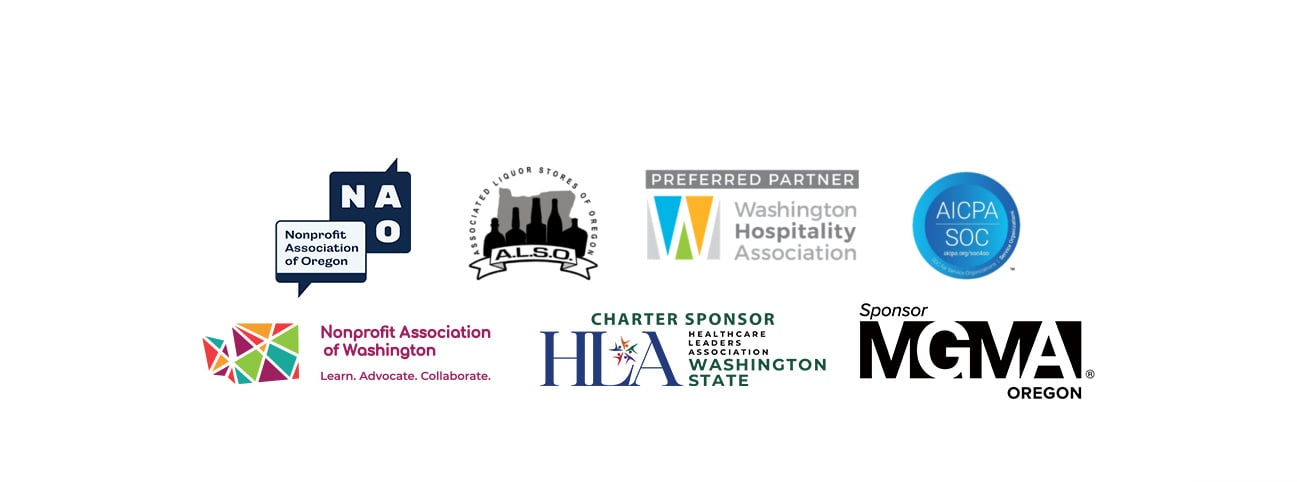- Services
- Insurance Partners
- Industries
- Resources
- About Us
- Get In Touch
- Services
- Insurance Partners
- Industries
- Resources
- About Us
- Get In Touch
In response to COVID-19, Congress has passed the Families First Coronavirus Response Act (FFCRA) and the Coronavirus Aid, Relief, and Economic Stimulus (CARES) Act to assist businesses and all Americans affected by the pandemic. With the new labor laws in place regarding employee leave and business tax credit availability, it can feel overwhelming to integrate it properly into your payroll system.
The Great Northern Staff Administrators (GNSA) is here for you. Here's some information you need to work through the new legislation.
With the Families First FFCRA now in effect, small to mid-size businesses are now required to provide paid sick and family leave to employees affected by COVID-19. The types of leave are as follows:
The Department of Labor has created a list of FFCRA frequently asked questions about the requirements of paid sick time and leave. If you need any assistance setting up your payroll for these codes, in your time and labor management system give GNSA a call.
With the FFCRA leave requirements and the expanded FMLA & FLSA, qualified employers must update their tax credits. While GNSA is unable to advise whether your company is eligible for the tax credits, we are here to set up the appropriate credits on your payroll.
According to the FFCRA, the guidelines for employers getting the refundable tax credits are as follows:
Starting April 1st and ending December 31st, 2020, small to mid-sized businesses can earn tax credits for the COVID-19 leave earnings. The IRS has compiled a list of FAQs on how businesses can receive these credits and what that means for their taxes this year.
The Payroll Protection Program (PPP) offered by the CARES Act provides $350 Billion to support small businesses in the first round alone. The PPP provides small businesses with the funds to pay up to eight weeks of payroll costs including benefits and may also be used to pay interest on mortgages, rent and utilities. This loan can be forgivable in its entirety.
At this time, banks have experienced delays in processing applications. While many business owners wait to send their applications in to their financial institution, GNSA recommends gathering the following data to make the process easier.
Do you need to generates these pieces of information because you're not already an existing payroll customer? Contact GNSA to learn more about your Oregon payroll service options.
Section 2302 of the recently passed CARES Act refers to an Employment Payroll Tax Deferral option to help businesses during these challenging times of COVID-19. It is our understanding that this Payroll Tax Deferral is available to all employers with no size restriction. However, if an employer has received Paycheck Protection Program loan forgiveness under Section 1106 of the CARES Act, they are ineligible for this Payroll Tax Deferral.
This part of the legislation allows for a deferral of immediate payment of the Employer side of the Social Security tax on all wages paid through Dec. 31, 2020, with no penalties or interest charges. Employers must pay 50% of the deferred amount by Dec. 31, 2021 and the other 50% by Dec. 31, 2022.
Here's how GNSA is helping clients, companies throughout the Northwest, with this portion of the CARES Act:
The CARES Act will then require the individual employer to bear the ultimate responsibility to track and pay these deferred taxes by the dates due.
*Please note that GNSA would always recommend consulting your legal counsel to ensure that your company is eligible to opt in to any new legislation.
Oregon Governor Kate Brown has issued a shelter in place order through Executive Order No. 20-12 until further notice. All residents are to remain at home save for essential travel to essential businesses, such as grocery stores and healthcare visits.
Businesses are required to have FFCRA posters placed in employee areas, encourage social distancing whenever possible and complete adequate cleaning with the proper cleaning supplies. Business Oregon along with other Oregon agencies has compiled a list of resources for businesses on how they can receive the resources and assistance, including loans covered by the CARES Act.
The governor has ordered the following to assist further:
Specific counties and cities have also opened more loan relief programs to assist Oregon business in COVID-19. Business Oregon has a list of what programs they know of here.
GNSA is here to help businesses throughout COVID-19. We have the Northwest and Oregon HR expertise to create help with FFCRA compliance, keep you up to date on the latest COVID-19 news, and answer your payroll and HR questions about it. Give us a call today: (503) 972-0999.
6915 S Macadam Ave
Suite 350
Portland, OR 97219
Phone: 1-503-972-0999
Email: info@gnsadmin.com
MON-FRI 6:00 AM – 5:00 PM PST
